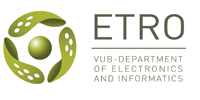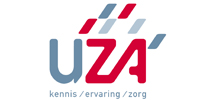
Project overview
CATRIS (Computerized Assessment and Treatment of Rate, Intonation and Stress) is a project funded by the Flemish government (IWT), involving two research groups: COM (UZA) and ETRO-DSSP (VUB). The project addresses the needs of people with dysarthria by providing:
- a speech technology based clinical tool for assessing speech rate, intonation patterns and stress patterns in reading passages and spontaneous speech
- a computer-based therapy program for improving speech rate, intonation and stress at different linguistic levels (sentence, text and spontaneous speech) which provides the patient real time feedback and which can easily be used for home-therapy
The scientific objective is the translation of the current knowledge in the domain of speech processing of prosodic features into a computerized application for speech therapists (assessment) and dysarthric patients (home therapy). To reach this goal, algorithms available for healthy speakers will be adapted for patients with pathologic speech (dysprosody).
The ultimate goal of the therapy part of CATRIS is to improve intelligibility or -in case of progressive dysarthria- to stabilize or to slow down decrease of intelligibility in (Flemish) individuals with dysarthria. The positive effect on the speaker's intelligibility will automatically be reflected on the speaker's quality of life and participation in daily conversations.
A unique aspect of the therapy program that requires specific attention is the possibility to train the specific prosodic skills at spontaneous speech level. Currently, clinicians mainly use reading as mode of therapy. It can be expected that practicing at spontaneous speech level will facilitate generalization of improved skills to use in daily life. Next to the impact of the therapy program on intelligibility and generalization of improved skills, CATRIS has some benefits that are due to the fact that the therapy program is computerized. First it offers the dysarthric speaker the opportunity to practice without the presence of a speech therapist. It is well known that intensive treatment is a lot more effective than less intensive treatment. However, the number of treatment sessions and the duration of those sessions are often limited due to practical circumstances. CATRIS will make it possible to increase the total capacity of treatment (different settings and more intense). Second, the program will allow the patient to continue therapy when the official, reimbursed speech therapy has been consumed.


